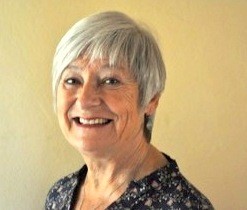Bridging the Gap: Dr. Jan Eldred
Welcome to the BAICE e-forum, again! Today’s discussions are facilitated by Dr. Jan Eldred, Senior Research Fellow, National Institute for Adult and Continuing Education (NIACE).
 Jan has scores of years of interest in adult literacy in both the UK and in international development. She has been a literacy tutor organiser, FE officer and Head of Faculty for Community Education as well as Assistant Director of NIACE. She is currently looking at the impact of literacy and numeracy learning across the UK as part of the European Agenda for Adult Learning. Jan has chaired the UK Literacy Working Group since its inception in 2006 and worked with the group on publications, events and parliamentary representation, particularly related to women’s literacy development. She volunteers as a team leader with Habitat for Humanity, around the world, being particularly interested in the role of women in legal and financial literacy, related to home ownership.
Jan has scores of years of interest in adult literacy in both the UK and in international development. She has been a literacy tutor organiser, FE officer and Head of Faculty for Community Education as well as Assistant Director of NIACE. She is currently looking at the impact of literacy and numeracy learning across the UK as part of the European Agenda for Adult Learning. Jan has chaired the UK Literacy Working Group since its inception in 2006 and worked with the group on publications, events and parliamentary representation, particularly related to women’s literacy development. She volunteers as a team leader with Habitat for Humanity, around the world, being particularly interested in the role of women in legal and financial literacy, related to home ownership.
Discussion Issue
As a practitioner, researcher and developer of adult literacy/literacies, through out my professional life I have spent many hours reflecting on why others don’t ‘get’ what all our Bridging the Gap discussions indicate. This is, that literacy makes a difference to people’s lives in so many diverse ways but quintessentially, by empowering them to be fulfilled human beings, whether in relation to personal development, family, work, community or politics. There is no doubt that literacy development is complex and challenging but so are many other areas of learning.
I agree with some contributors who decry the lack of institutions and infrastructures, which support continuing education. I recognise the dominance of schooling and formal education and equating them with the only form of valuable education as well as the lack of vision of learning as a lifelong, life-wide activity for everyone. I agree with those who believe that this reflects power and hegemony. I also agree with those who say that adult literacy learning is often a campaign or an initiative;both of these suggest that adult literacy is a ‘problem’ which can be addressed by throwing money at it for a limited period of time. An acceptance of the concept of and commitment to lifelong learning would support and sustain adult literacy as part of that life – long continuum. Literacy learning would then be seen as important as any other area of learning and development.
It seems to me that it is up to us, who firmly believe in the value of learning throughout life, for all adults, to pick up the cause and be judged by our actions.
As Anna indicates, there is a lot of research out there, so it’s not necessarily a lack of research, which stops adult literacy development. Participants in this forum agree that the gap is between research and practice. Much research stays within the research community. Yes, it is disseminated, but often, not applied and used. Practitioners are busy doing and don’t have time – or often access – to the documents, which might inform their development. This gap would be unthinkable in medicine, where huge amounts of investment in research lead to changes in practice. (Again, this reflects power;the rich get sick, so influential people find funds;few of them need to develop their literacies.) I suggest we should have research AND development much more closely linked.
Practitioner research, where academics work alongside and in partnership with practitioners, has been demonstrated to be effective. Changes happen in practice as well as in academic thinking, as a result of such partnerships.
- What if research proposals had to involve development partners?
- What if research proposals included post-research development phases with practitioners, as medicine includes clinical trials?
- What if such development phases had to produce materials, tools, guides and development for practitioners?
- What if evaluation studies encouraged and supported reflective practice in the field, in an on-going way, not just evaluation of an initiative or project?
- Would such approaches help researchers and practitioners to work more closely together, to bridge the gap and improve what we are all trying to do? Would such practices help us to demonstrate to those who don’t ‘get it’ the impact of lifelong learning and literacy learning in particular?

